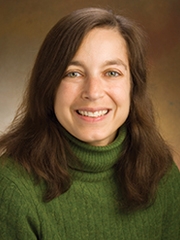Introducing the Coronary Anomaly Management Program (CAMP)
New program offers care, monitoring in partnership with referring physicians
Published on
Cardiac ConnectionPublished on
Cardiac ConnectionCaring for a patient with a coronary artery anomaly can be enormously challenging. These anomalies are often diagnosed in asymptomatic children who have an echocardiogram done for another reason, and there are no clear guidelines on how to care for them. In some cases, surgery may be a patient’s best option; in others, close monitoring may be all that is needed. And making the right decision is critical: Certain types of coronary artery anomalies are associated with a high risk of sudden cardiac death.
The Cardiac Center at The Children’s Hospital of Philadelphia has created the Coronary Anomaly Management Program (CAMP), the only program  of its kind in the mid-Atlantic region, to provide comprehensive care and monitoring for children with a coronary artery anomaly. Led by Julie Brothers, MD, who has spent years studying coronary artery anomalies, the program brings together world-renowned CHOP experts, including a cardiothoracic surgeon, an adult congenital heart disease specialist, and cardiologists with special expertise in echocardiography, electrophysiology and MRI, to coordinate care for patients with these difficult-to-manage conditions. The entire team meets frequently to review cases and discuss their recommendations, which are then shared with the child’s family and referring physician.
of its kind in the mid-Atlantic region, to provide comprehensive care and monitoring for children with a coronary artery anomaly. Led by Julie Brothers, MD, who has spent years studying coronary artery anomalies, the program brings together world-renowned CHOP experts, including a cardiothoracic surgeon, an adult congenital heart disease specialist, and cardiologists with special expertise in echocardiography, electrophysiology and MRI, to coordinate care for patients with these difficult-to-manage conditions. The entire team meets frequently to review cases and discuss their recommendations, which are then shared with the child’s family and referring physician.
Research is also a key part of the CAMP team’s mission. In 2009, Brothers brought together a group of cardiologists and surgeons to establish the Registry of Anomalous Aortic Origin of the Coronary Artery. Through the registry, the team has collected data on more than 300 patients from the United States and Canada to date — the largest cohort of patients with this condition being studied anywhere in the world.
The CAMP team’s goals are to establish evidence-based standards of care for coronary artery anomalies — and to partner with referring physicians to make it possible for affected children to live full and healthy lives.
Categories: Cardiac Connection Fall 2014